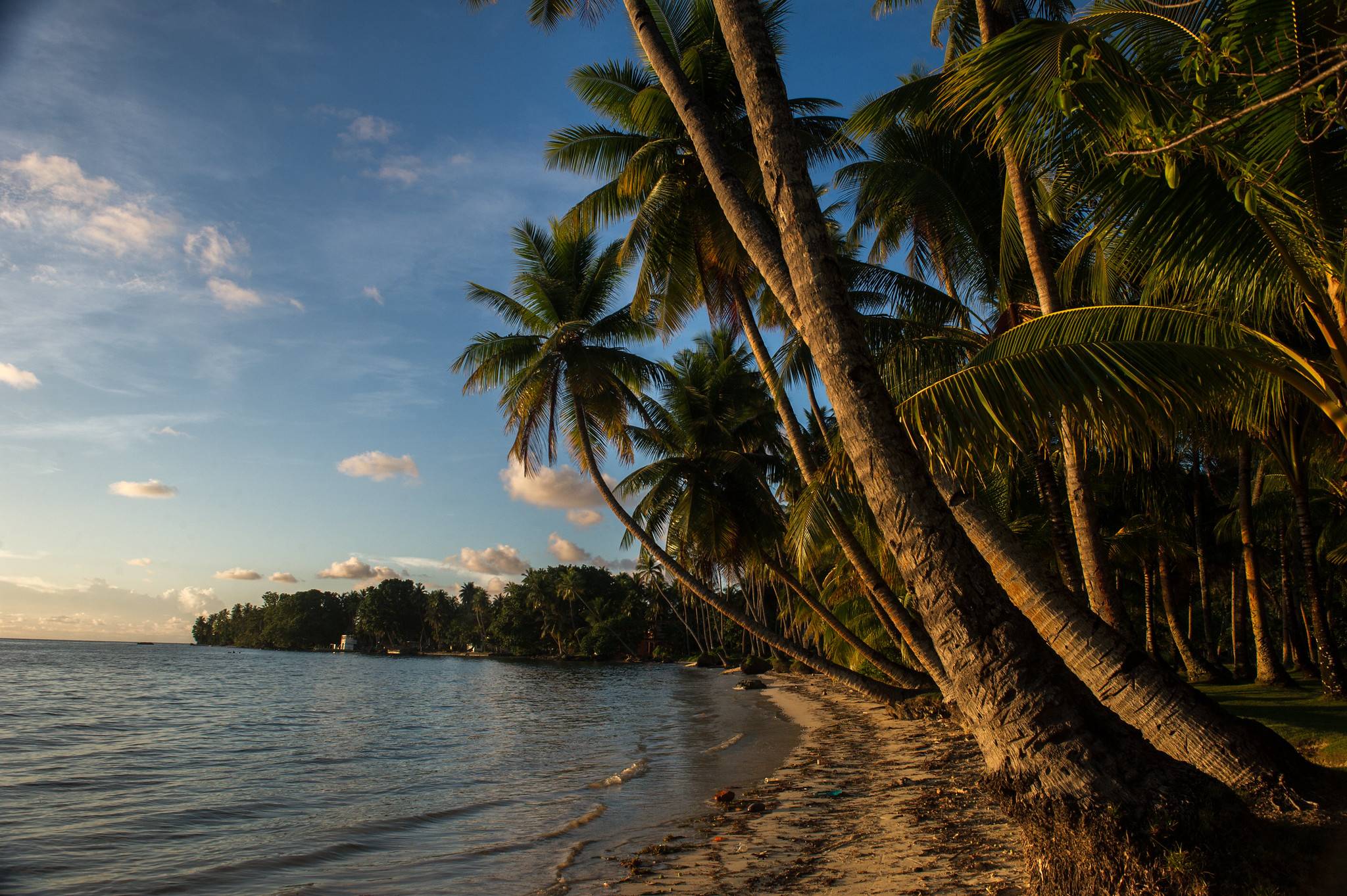
National SCP context and Connection to the Global Agenda: waste management and lifestyles
The Federated States of Micronesia (FSM)'s commitments include integrating the Sustainable Development Goals (SDGs) and participating in the United Nations Climate Change Agreement, linked to the FSM Strategic Development Plan, 2004 - 2023.[1] The FSM launched the first Voluntary National Report (VNR) in 2020 covering SDG12, especially Targets 12.4 and 12.5. The FSM has made solid progress in both dealing with waste (exporting batteries and used oil) and expanding recycling initiatives. FSM is a party to the following conventions and continues to meet its obligations: the Stockholm Convention; the Basel Convention; the Waigani Convention; and the Noumea Convention. FSM is also part of the Pacific Islands Regional Recycling Initiative Council (PIRRIC). [2] The country has implemented several solid waste management strategies, Furthermore, the nation’s C4Life project upholds responsible consumption and production practices by utilizing zero-waste production practices. [3]
Challenges
- While recycling programs in Kosrae, Yap, and Pohnpei have made progress, a nationwide shift toward recycling various waste streams is still needed. Challenges include the cost of shipping recycled materials abroad, finding consumers,2 and prioritizing e-waste management in policy.[4]
- Address potential polluting wrecks and their oil spills
- The Big Ocean State faces existential threats from climate change, overfishing, and vulnerability to natural disasters.[5]
- Complexities related to data remain a significant challenge in defining targets for the prioritized indicators for monitoring SDGs in the FSM.5
- Secessionist movements have at times unsettled the country's politics and threatened its unity. Ongoing problems include underreporting of domestic violence and the exploitation of migrant workers. [6]
Priority sectors
- Supporting the achievement of zero waste, especially within the coconut product supply chain.2
- For tourism to contribute fully to national development, there must be strong commitment from social, political, and traditional leaders, as well as the general population. Aside from hotels and aviation, the FSM's tourism relies mainly on small, locally owned businesses. This sector is vital for creating jobs and stimulating demand in other sectors.1
- Recycling has become a priority in FSM, and two states – Yap and Kosrae – have entered into public-private partnerships to increase recycling efforts on the islands.2
- Small-scale fisheries are important for providing food and supporting health, as well as preserving rural lifestyles against urban migration.1
Opportunities
- Promoting awareness for sustainable development and lifestyles harmonious with nature.2
- Encouraging knowledge on waste management, behavior change, and reducing recycling by promoting other 'R' practices,2 while leveraging the socio-economic and environmental benefits of the circular economy approach to enhance e-waste management systems.4
- The promotion of traditional lifestyles, social structures, and cultures in the FSM provides a variety of interests for visitors.
- Providing knowledge about sustainable consumption and production and improving the value chain for coconuts.
[1] FSM. (2004). Strategic Development Plan 2004 - 2023
[2] FSM. (2020). Voluntary National Review on the 2030 Agenda for Sustainable Development
[3] FSM Vital Energy. (2021). Coconut for Life (C4L)
[4] UN. (2024). The United Nations Common Country Analysis for the Micronesia Subregion 2024/25
[5] United Nations SDGs. (2020). Federated States of Micronesia
[6] Freedom House. (2022). Micronesia: Freedom in the World 2022 Country Report


